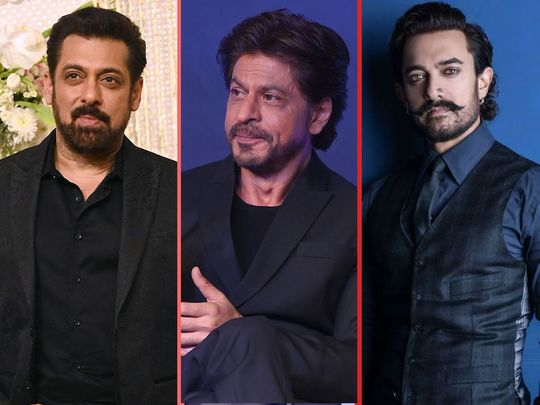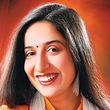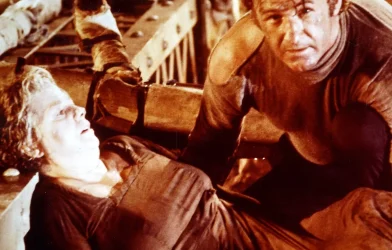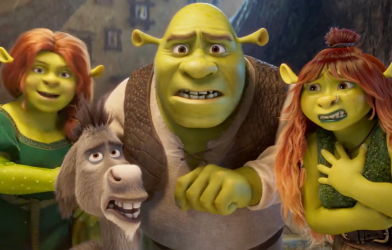India’s unarguable soft power lies in its cricket and Bollywood industries, both revered domestically and acting as cultural ambassadors on the global stage. However, Bollywood is currently in the grip of a crisis, grappling with a collapse of creativity — the very intangible quality that conjures the illusions and worlds we escape into.
The narrowing of the Bollywood mind is a sight to behold: a limited wheelhouse of ideas, even more limited talent, self-referential and indulgent subjects, and a pitiful lack of comprehension of India outside the “precious” South Bombay cafés. This has resulted in flop after flop, as financial backing exits the industry, making it increasingly difficult to produce the “pretty pictures” Bollywood is known for.
Industry insiders I’ve spoken to over nearly two months for this SWAT analysis point to a near-collapse in Bollywood. Old movies are being re-released and finding audiences in theatres, while new films struggle to draw even a near-zero audience.
In February of this year, classics like Dilwale Dulhania Le Jayenge, Jab We Met, and Mohabbatein were re-released in theatres alongside successful southern-language hits. In stark contrast, new films released in the same period, such as Fighter, Main Atal Hoon, and Teri Baaton Mein Aisa Uljha Jiya, tanked on their opening days.
Downfall of established stars
Akshay Kumar, once a bankable star, has faced a string of 13 flops in a row, with the latest being Sarfira. Earlier titles like Bell Bottom, Ram Sethu, Mission Raniganj, Laxmii, Katputli, Atrangi Re, Samrat Prithviraj, and Bachchan Pandey have also failed to perform.
Industry insiders say that Kumar hasn’t had a proper hit since 2021. Yet recently, Kumar aggressively attacked journalists who questioned him about his string of flops.
Insiders claim he demands huge fees and does back-to-back films, overexposing himself to the audience. At 56, Kumar is seen as out of touch, repeatedly cast in roles that have him romancing women young enough to be his daughter, in stories seemingly ripped straight from the headlines.
Take another actor, Jhanvi Kapoor, daughter of the legendary late star Sridevi. Kapoor has had seven flop releases at the box office: Dhadak, Gunjan, Roohi, Good Luck Jerry, Mili, Mr. and Mrs. Mahi. Her latest, Ulajh, is out now.
Read more by Swati Chaturvedi
These cookie-cutter star kids look and sound alike: Khushi Kapoor (Jhanvi’s sister), Ananya Pandey, Shanaya Kapoor, and Suhana Khan (daughter of Shah Rukh Khan), Sara Ali Khan (daughter of Saif Ali Khan). They’re more of the same.
Nepotism debate
It’s not that Bollywood hasn’t dealt with nepotism before, but attitudes have shifted. The earlier generation of nepotism products like Abhishek Bachchan, Hrithik Roshan, Ranbir Kapoor, Alia Bhatt, and Varun Dhawan at least came with some talent. Now, the talent pool seems to have dried up.
Ironically, superstar Shah Rukh Khan, who had a rags-to-riches story ascending to stardom from television, is now pushing to make his daughter Suhana a star. Her debut flopped, yet she’s managed to bag huge beauty endorsements. Khan himself is acting in a film with her to give her the elusive success.
The other problem is the ageing superstar trio: Shah Rukh Khan at 58, Salman Khan at 58, and Aamir Khan at 59.
Ajay Devgn, 55, just had a flop this week. These heroes refuse to act their age, and the audience isn’t buying them as fresh-out-of-college romantic leads alongside heroines half their age.
Even in action movies, the computer graphics used to give these otherwise portly middle-aged men six-packs are obvious to the audience and no longer effective.
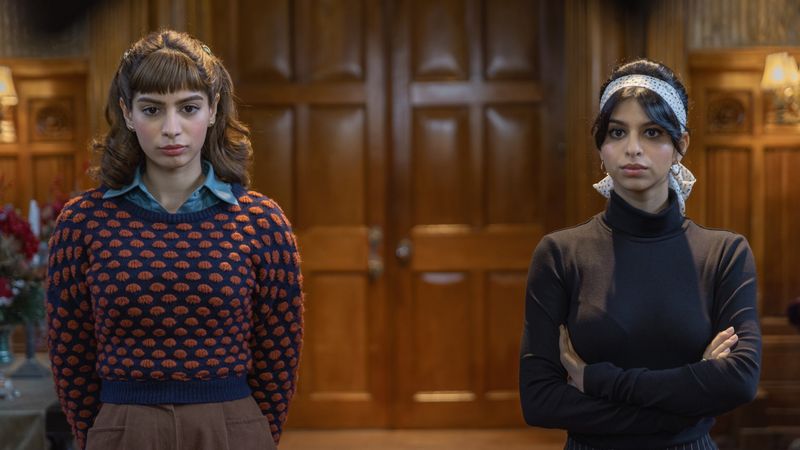
Image Credit: Courtesy of Netflix
Fear of controversy
The biggest crisis is that Bollywood has walled itself off from fresh ideas, thinking, and talented outsiders. Scripts are repetitive because writers can’t convince directors and producers, who have a worldview limited to Los Angeles, about what resonates in heartland India and appeals to small-town audiences.
Producers and directors shy away from “controversial” subjects, fearing legal cases, harassment, and violence. A certain political thought polices movies, ensuring that contrarian viewpoints face a firewall, says a director who was once outspoken and known for challenging politicians. Now, he says he’s a “pariah,” unable to make movies even for OTT platforms.
As film after film flops, financing is drying up. Even flop actors demand enormous fees yet can’t even guarantee a Friday opening at the box office. For every Kabir Singh that worked for Shahid Kapoor, he’s had a string of failures, yet his price is non-negotiable, says a director. “How does one make a movie with these kinds of stars who don’t seem to live in reality?” he adds.
Bollywood currently churns out “safe subjects” with “safe superstars” under “supervision” and then reaps mediocre or no returns. As the Khans age out, there is currently no replacement or new superstar on the horizon, male or female.
The magic of movies
The actual connection between an audience and movies is an organic magic. Films give wings to our imagination, make us fall in love, react to beauty and art, and allow us to forget our mundane worries for a while in the theatre.
But when the movies fail to move us, don’t blame the audience.

